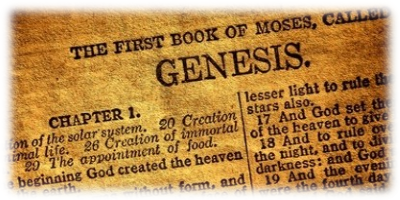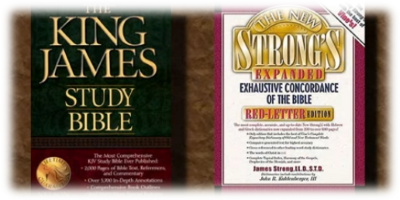Anyone who attempts to teach or lead others in a study of Genesis will approach it in a way that is most meaningful to him. He will emphasize certain aspects of the book which he has found most helpful and which he believes will be most beneficial to his students. The benefits that the leader/teacher has received from the book most likely arose out of his need and or the insights he gained through another. Such is my case. Let me share with you my brief history with a focus on why I developed a study course in Genesis 1-11 and a Bible learning website.
I was raised in Indiana in a family which attended a protestant Christian church regularly. But it was not until I was 20 years old that I was graciously given the desire to know God through His Son Jesus Christ. Besides being given a whole new view of God, of me and of others, the Bible became “alive” to me for the first time. When I read it, God seemed to speak to me. I wanted to know Him and what was written in the Scriptures more and more.
As a college student I got involved with Campus Crusade for Christ (called Cru today). Through this involvement I was able to begin ministering Jesus Christ to others as I witnessed of Him and His work in my life and as I helped others study the Scriptures. I particularly liked doing the latter and lead small groups of students, as well as a youth Bible study in my local church. Through these experiences I developed the desire and gift to teach the Scriptures to others. I also very much enjoyed listening to others teach, especially if they focused on and taught right out of the text of Scripture rather than topically. From observing them I learned to teach.
Upon graduation from college I joined the staff of Campus Crusade serving in administration. Over the course of the first several years on staff I took opportunities to lead small groups in studies of various books of the Bible in my church and ministry office, preferring usually to develop my own study guides.
It was also during this time of service in the States that I met and eventually married my wife Dawn, who was also a Campus Crusade staff member. We both desired to serve with our ministry overseas, particularly in Europe. So shortly after we wedded we began the application process within our organization for international service. Before we received a specific “call”, however, we had our first child, a daughter. When the “call” came we were asked to go and serve in the Eastern Europe area of affairs, which we were happy to do. After a year and a half of support development, international training and the birth of our second daughter, we departed for Europe.
When we arrived in Europe the Eastern bloc countries were still behind the communist “iron curtain.” So, even though our ministry focus was Eastern Europe we actually lived in southwestern Germany. There we served under the leadership of Bud and Shirley Hinkson, an American couple who had pioneered modern missions work in Eastern Europe. They were dynamic and had influenced many to come serve with them, but one of the things I appreciated most about them was their great respect for and devotion to the Scriptures. Bud had not only memorized books of the Bible in English, but in German as well. To listen to him share from the Scriptures inspired me. I wanted to do the same and did so. While stationed there performing in an administrative role I too had the opportunity on occasion to lead a small group study, but not as much as I wanted.
After the fall of Soviet communism in that region, “doors” opened up for our staff to actually move into various countries where it had not been possible before. Dawn and I felt the Lord leading us to move to Moscow where someone with my administrative experience was needed. So, in September of 1992 Dawn and I and our four children, five years old and under, drove from Munich, Germany, to Moscow, Russia, to set up our home and ministry for the next 17 years.
About six years into our sojourn the ministry leadership decided to give my responsibilities to Russian staff. Dawn and I did not yet feel called to leave Moscow or the New Life Russia ministry (CCC in Russia), so we began to look into other ways to serve there, ways that matched more of our experiences, gifting and desires. I also took the opportunity to get more graduate level theological education by extension. Two experiences in this latter adventure impacted me.
One occurred as I took an online course through Campus Crusade’s seminary in the US, the International School of Theology. At various points of the course I would send a question to the professor by email. But he was slow to respond, if he did at all. I wanted more involvement from him, but he did not seem interested. I then determined that if I ever had the opportunity to lead others in a study of the Bible or theology online, and if a student asked me a question I would do my best to respond to him or her as quickly as possible, even if it were only to say that I was working on the question and would respond shortly.
The second experience occurred in the Spring of 2000 when I took another graduate course through the same seminary’s branch in Hungary. The course was Apologetics. We had to read portions of books and send in writing assignments before going to Budapest for a week of lectures. One of the books we read was What is Creation Science? by Henry Morris and Gary Parker and one of the days of lectures was dedicated to the issue of Creation vs. Evolution. The lecturer for that day was Dr. Terry Mortenson, who was also on the Eastern European CCC team. He presented, what I believe were, excellent evidences from the Bible and science for a straightforward understanding of the Scriptural accounts of Creation and the Flood in Genesis 1 and 6-8. As a final assignment for the course, I chose to write a 30-page paper evaluating the views of Hugh Ross, a leading progressive creationist.[1] Through this process I began to see how he and others have seemed to distort the plain reading of Genesis 1 in order to conform to current scientific theories rather than conform their understanding of science to Scripture.
What I learned through the day of lectures and in writing the paper encouraged my faith in the Scriptures. Oh, I would have affirmed before then that I believed all that the Bible had to say. But if the truth be told I would have had been hard pressed to defend the Genesis accounts of Creation and the Flood in the face of skeptics. After the lectures and writing the paper, which involved taking a closer look at Genesis 1, I saw that there are many solid reasons to believe the Genesis text as it is written rather than not to. So why not let them mean what they say? My confidence in the Bible was greatly strengthened and I felt as though I had experienced a personal reformation. I even came to the point where I felt as though I needed to repent of my prior unbelief in order to drive a stake in the ground that I will from that point on believe what is written in the early chapters of Genesis.
As is often the case with experiences of reform and repentance we begin to wonder why we had not learned these things before; why those who had had the chance to teach us had failed to do so. We can also tend to call those to task who continue to teach what we now see is false. We tend to debate those who disagree with our new understanding and can make some enemies along the way. It can be a rough and tumble road for the new “convert.” But we can learn even from our mistakes, allowing the Lord to sharpen our understanding and make us more gracious. This has been the road I am still on.
However, I also decided to use my skills and gifts in leading small group studies to help share with others what I was learning from Genesis. First of all, I lead a Sunday School class of 10 and 11 year-old boys in a study of Genesis 1-11 and developed my own study guides in doing so. After this I offered the same study for staff in our mission’s office in Moscow. These were great experiences for me to sharpen my own understanding of Genesis through study and through teaching others. There is no better way to learn than to teach others what you are learning. You don’t have to know it all, you learn more as you help others.
I also began to wonder if I could interest some of our staff in other cities throughout Russia, so I decided to offer the course in Genesis 1-11 as a long-distance small group study to be conducted by email and attachments. To my surprise some took me up on this offer and thus began my long distance education career/ministry. What I did with the first group and subsequent groups was to send all members a study guide each week which they in turn were to complete and send back to me and everyone in the group within a week’s time. I would also include a few of what I called Thought Questions in each assignment. These were designed to generate discussion among the group members. I would read through each person’s work, write comments and then send a copy to each person in the group in hopes that they would read and learn from the interaction. I was learning as I went along how to do this. It was exciting.
Over the course of the next several years I had the opportunity to lead over 150 people in 23 different countries through Genesis 1-11. I also developed studies for the rest of Genesis and the other books of Moses. Some of the 150 went on to finish Genesis with me and even go through the other books. Until 2006 I did this all by email, but then a missionary friend helped me develop my own teaching website using the free source Moodle educational platform. The website b-study.expertlearning.net is still in operation where you may study Genesis through Joshua, as well as several other books of the Old and New Testaments. I will personally interact with you in the course of your study.
I invite you to study the Bible at my site. Begin with the Genesis 1-11 course. It will lay a solid foundation for the rest of Scripture.
In Christ,
Tim Patterson [website] [eMail]
[1] Progressive creationism is the belief that God created new forms of life over a period of hundreds of millions of years rather than in six literal days. It relies heavily upon mainstream geological and cosmological estimates for the age of the earth.

Like what you’re discovering? Continue the journey from Bible reader to translator.
|






